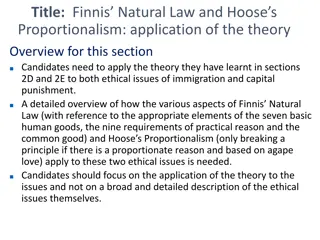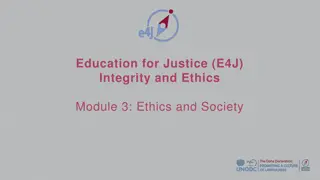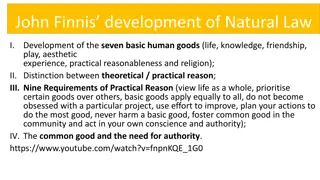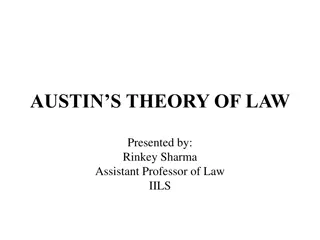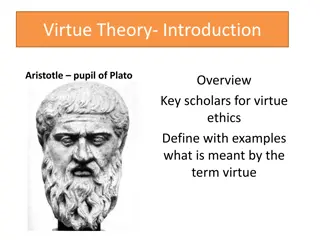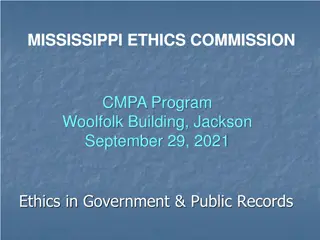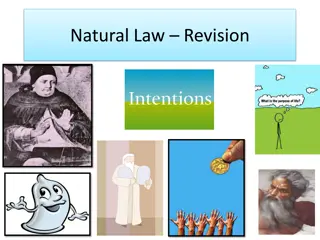Exploring John Finnis' Natural Law Theory in Ethics
Delve into the development of John Finnis' Natural Law theory as applied to contemporary ethical issues like immigration and capital punishment. Understand the seven basic human goods, practical reasonableness, and the common good as foundational elements. Evaluate the strengths and weaknesses of Finnis' approach through past paper questions and common mistakes. Explore complex scenarios related to immigration and the application of Natural Law to real-world dilemmas.
Download Presentation

Please find below an Image/Link to download the presentation.
The content on the website is provided AS IS for your information and personal use only. It may not be sold, licensed, or shared on other websites without obtaining consent from the author. Download presentation by click this link. If you encounter any issues during the download, it is possible that the publisher has removed the file from their server.
E N D
Presentation Transcript
Summer 2019 A-Level Religion and Ethics Clare Lloyd
John Finnis Development of Natural Law Past Paper Questions: 2019 a.) Apply Finnis Natural Law to the issue of immigration (20) b.) Finnis Natural law is not an effective way to make moral decisions Evaluate this view (30) SAMs a.) Explain John Finnis development of Aquinas Natural Law (20) b.) The Strengths of Finnis Natural Law outweigh its weaknesses Evaluate this view (30)
Specification John Finnis Development of Natural Law: Development of the seven basic human goods Distinction between theoretical / practical reason Nine requirements of practical reason The common good and the need for authority Application to: 1. Immigration 2. Capital Punishment
The Application of Finnis Natural Law Common Mistakes Not understanding the complexity of the issue of immigration Pitting the goods against each other Not considering the role of law
The Application of Finnis Natural Law Covers many complex scenarios Immigration Asylum / Humanitarian needs / responsibilities Life improvement / participation in the goods Quantity of people / needs of communities
The Seven Basic Goods Self-Evident | Universal | Irreducible | No Hierarchy | Not Laws | Values | Basic 1. Life 2. Knowledge 3. Play 4. Aesthetic Experience 5. Sociability (Friendship) 6. Practical Reasonableness 7. Religion
The Nine Requirements of Practical Reasonableness A Basic Good | The Natural Law Method 1. A coherent plan of life 2. No arbitrary preferences amongst values 3. No arbitrary preferences amongst persons 4. Detachment 5. Commitment 6. The (limited) relevance of consequences (Efficiency, within reason) 7. Respect for every basic value in every act 8. The requirements of the common good 9. Following one s conscience
The Application of Finnis Natural Law The 100 Should Wonkru be allowed to remain in Sanctum?
The Application of Finnis Natural Law The 100 Who gets to decide?
The Application of Finnis Natural Law The 100 How do we decide who can stay?
The Application of Finnis Natural Law The 100 What problems do you come across?







